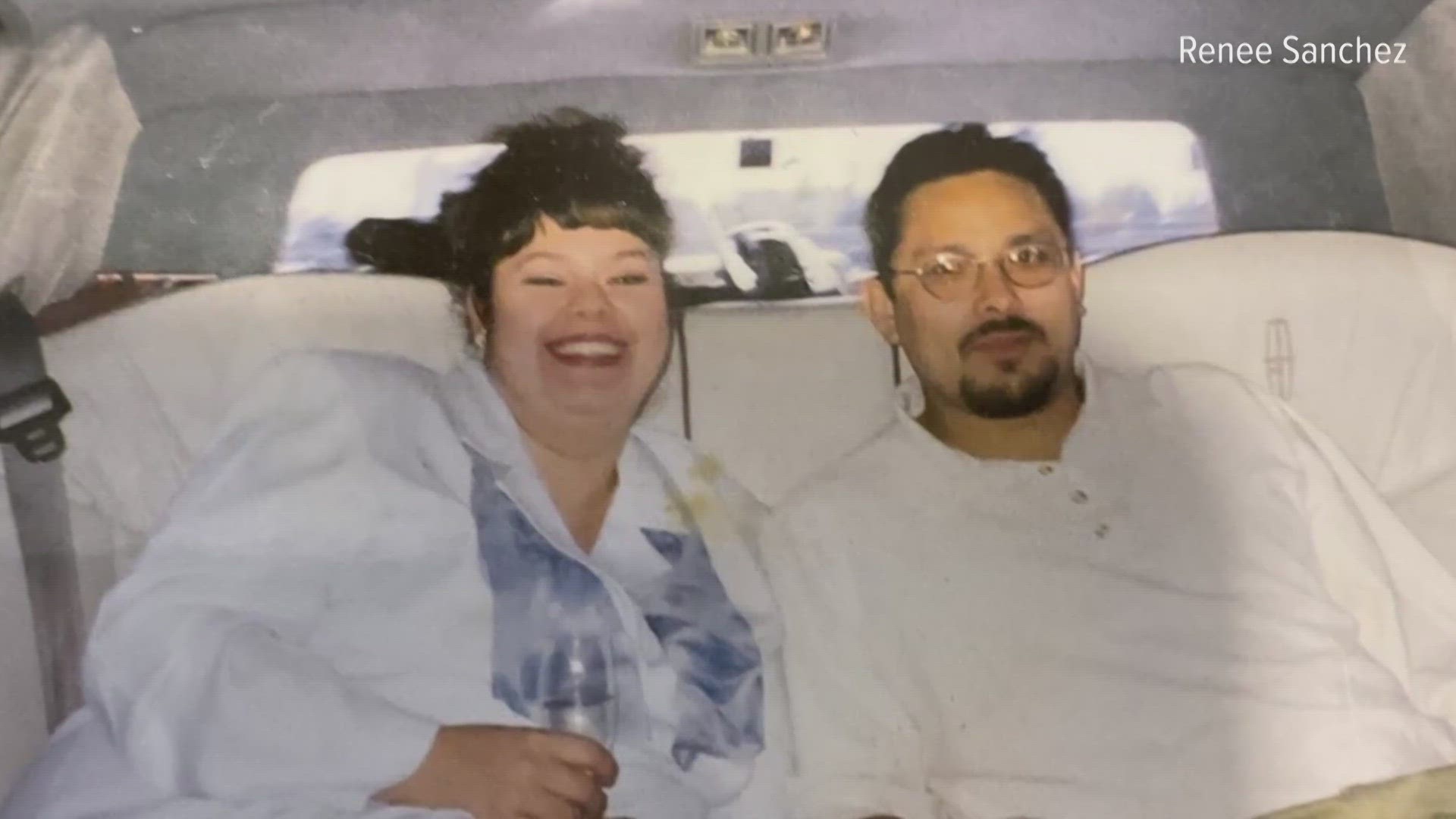CALIFORNIA, USA — We’re talking about two topics many people avoid even thinking about: money and the death of a spouse.
Some of life’s most uncomfortable conversations are the most important ones to have. We often wait too long to have them and then it’s too late, which is what happened to a Sacramento woman.
Her husband’s death not only broke her heart but also left a huge financial hole she's struggling to dig out of.
“This is just the tip of the iceberg. I’ve got stacks in my other room of stuff that needs to be done," said Renee Sanchez.
Sanchez is swimming in a sea of documents in the home she shared with her husband of 30 years and where she raised her family.
"We were blessed to find this house," said Sanchez.
It’s a home she now fears she may lose. The recent death of her high school sweetheart, her husband Ignacio, was a crushing emotional and financial blow.
It’s a financial situation she wishes she was better prepared for.
"Act right then in the moment. Don't let it sit. Don't let it fester. Don't let it grow into this huge mountain of stuff that I have to deal with. Ask somebody for help," said Sanchez.
Finance expert and president of Towerpoint Wealth, Joseph Eschleman, says there isn’t a uniform set of rules to go about tackling these conversations.
“Have a good inventory of what your assets are, where they're held, have it either digitally and or we encourage clients to also have it on paper. Share that information with your close family members," said Eschleman.
Planning ahead will allow you time to grieve when that time comes.
"We tend to want to encourage clients to have some kind of dialogue and open communication with children and or other family members. So at least when those times come, you know where this information is, and at least how to warehouse it — which is half the battle when you're grieving after the death of a spouse," said Eschleman.
In the event of a spouse’s passing, one of the first things you should do is take hold of certain documents.
"It's important to get a hold of a death certificate, probably you're going to need multiple death certificates," said Eschleman.
Banks and brokerage firms will need death certificates in order to retitle accounts. The same goes for IRAs or 401ks. You need to know the beneficiaries in order to know who to pass those assets on to.
"Changes in people's lives happen all the time. Therefore, you want to make sure you're staying on top of updating a will and or trust," said Eschleman.
He says it’s not uncommon for one spouse or partner to be the financial point person.
If you are not that person, what you might want to do right now is at least know what accounts you have and what the values are. Always make sure you update your will or trust — and if you don’t have one — make one.
"I have good angels looking over me and I have my faith, but I have to do my due diligence to make this happen. I’m tired of sleeping it off. I’m ready for a fight," said Sanchez.
Since dealing with a loss can be overwhelming, hiring a financial advisor or attorney can be helpful. Having an objective third-party can make it easier.
Grief is emotional, money is emotional — and that’s OK. Having a financial expert around can help diffuse any tensions and be beneficial from a communication standpoint.
Watch more on ABC10: Tips to save money on your power bills



















